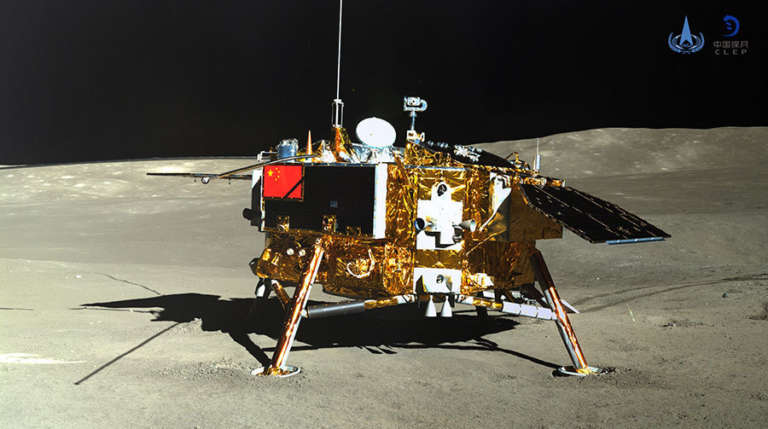Planetary Radio • Mar 06, 2019
China on the Final Frontier
On This Episode

Andrew Jones
Contributing editor for The Planetary Society

Bruce Betts
Chief Scientist / LightSail Program Manager for The Planetary Society

Mat Kaplan
Senior Communications Adviser and former Host of Planetary Radio for The Planetary Society
With missions like Chang’e 4 on the far side of the Moon, China has firmly established itself as a leader in space exploration. Space journalist Andrew Jones helps us explore the nation’s ambitious near and long-term plans. Emily Lakdawalla says Mars lander InSight’s Mole has hit an obstacle, while Jason Davis shows us how Japan’s Hayabusa2 has blasted asteroid Ryugu for a sample and celebrates the success of the SpaceX Crew Dragon demo mission. Chief Scientist Bruce Betts gets a polite dressing down from an impeccable source.

- Yutu-2 Rocks On into Lunar Day 3 for Chang’e-4 mission
- What’s next for China in lunar exploration?
- Stunning new images show what the Chang'e-4 mission has been up to
- Explore space missions with The Planetary Society
- Watch Hayabusa2's incredible touchdown on asteroid Ryugu
- Crew Dragon Successfully Docks to International Space Station
- InSight Update, Sol 92: The Mole Did Hit a Rock
- Fun With a New Data Set: The OSIRIS-REx Earth Flyby
A priceless Planetary Society KickAsteroid rubber asteroid and a 200-point iTelescope.net astronomy account.
This week's question:
What are the Hayabusa2 five gram bullets made of? (Not the bigger copper projectile that will make a much bigger impact.)
To submit your answer:
Complete the contest entry form at http://planetary.org/radiocontest or write to us at [email protected] no later than Wednesday, March 13th at 8am Pacific Time. Be sure to include your name and mailing address.
Last week's question:
Where will the Hayabusa 2 return capsule land with its samples collected at asteroid Ryugu?
Answer:
The answer will be revealed next week.
Question from the February 20th space trivia contest question:
Of the five known dwarf planets, which is the only one not known to have a moon?
Answer:
Of the five dwarf planets in our solar system, only Ceres has no (natural) moon.


 Explore Worlds
Explore Worlds Find Life
Find Life Defend Earth
Defend Earth






